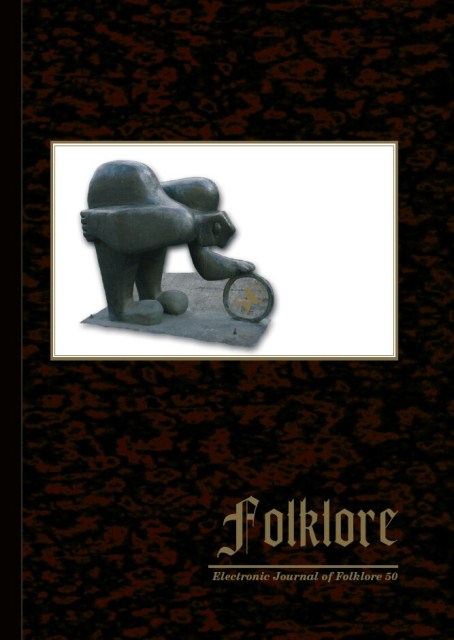Identity and Stereotypes: Humor Manifestations
Identity and Stereotypes: Humor Manifestations
Author(s): Laima Anglickienė, Rita RepšienėSubject(s): Customs / Folklore
Published by: Eesti Kirjandusmuuseum
Keywords: folklore; humor; identity; nicknames; stereotype
Summary/Abstract: The traditional understanding of humor as being tolerant, full of non-aggressive life curiosities, funny situations, mocking national or human vices, and related to an optimistic and contemplative attitude towards reality, has changed its main supportive points: the optimistic view of reality has been altered into a pessimistic and destructive one, forbearing ridicule has turned into severe offence, strangeness into stupidity, funny situations into futile misunderstanding. Everything is regarded as a dramatic possibility to survive or an endless situational tragedy where the most strict evaluation criteria, censorship, and dogmatism are empowered, meaning that, in the current times of widely propagated tolerance and overwhelming comprehension, it is extremely dangerous to offend somebody with an innocent joke or light mockery, to evoke an urge to contradict or negate when ideological aspirations are beyond “decency” limits. One of the most advocated rules in the Lithuanian press is: “Joke carefully with foreign nationals” from an interview with Barry Tomelin, London “International house” consultant and teaching director, the author of the book “World’s Business Cultures: And How to Unlock Them” (with Michael Nicks). Identity is to be saved and nourished as the highest sanctity but its formation, meaningfulness and spread are not always attuned to the official approach. Our life is full of stereotypes and our neighboring countries are not to be excluded – we have a preconceived notion of them. Using the national stereotype term we characterize relatively stable generalized opinions, in an open or hidden form, containing one or another assessment of a nation. Our attitude towards neighbors is revealed in nicknames given to them – non-official ethnonyms usually bearing a negative connotation. Some monikers have already lasted for centuries while others have been coined during the last decades. Anecdotes with the most popular foreign-born Russians and Estonians are discussed.
Journal: Folklore: Electronic Journal of Folklore
- Issue Year: 2012
- Issue No: 50
- Page Range: 9-28
- Page Count: 20
- Language: English

